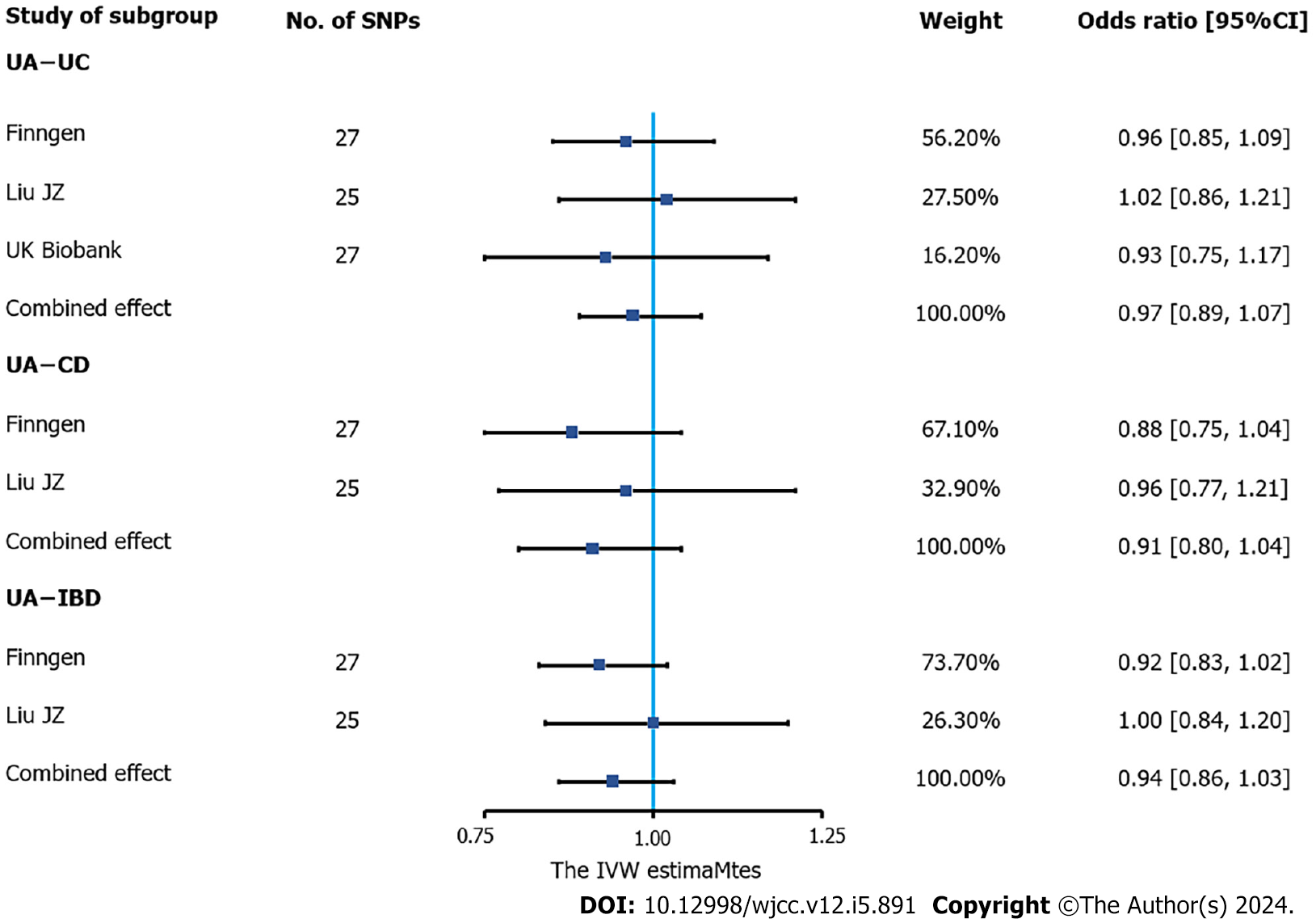Copyright
©The Author(s) 2024.
World J Clin Cases. Feb 16, 2024; 12(5): 891-902
Published online Feb 16, 2024. doi: 10.12998/wjcc.v12.i5.891
Published online Feb 16, 2024. doi: 10.12998/wjcc.v12.i5.891
Figure 2 Association of urate levels and inflammatory bowel disease in Mendelian randomization analyses (inverse-variance weighted estimate).
Estimated odds ratios (OR) represent the effect of per log-OR increase in urate levels on inflammatory bowel disease (IBD), using inverse-variance weighted analysis, per outcome database separately. The meta-analyses combined the three databases (genome-wide association studies meta-analysis by Liu et al[19] and the FinnGen and UK Biobank databases) for UC and the former two databases for IBD and Crohn’s disease (UK Biobank data were not available) using a fixed-effects model. IBD: Inflammatory bowel disease; UA: Ursolic acid; UC: Ulcerative colitis; SNP: Single-nucleotide polymorphisms; CD: Crohn’s disease; CI: Confidence interval; IVW: Inverse-variance weighted.
- Citation: Zhang S, Fang X, Kang L, Sui XY, Liu M, Luo YJ, Fu S, Li ZS, Zhao SB, Bai Y. Serum urate is associated with an increased risk of inflammatory bowel disease: A bidirectional Mendelian randomization study. World J Clin Cases 2024; 12(5): 891-902
- URL: https://www.wjgnet.com/2307-8960/full/v12/i5/891.htm
- DOI: https://dx.doi.org/10.12998/wjcc.v12.i5.891









